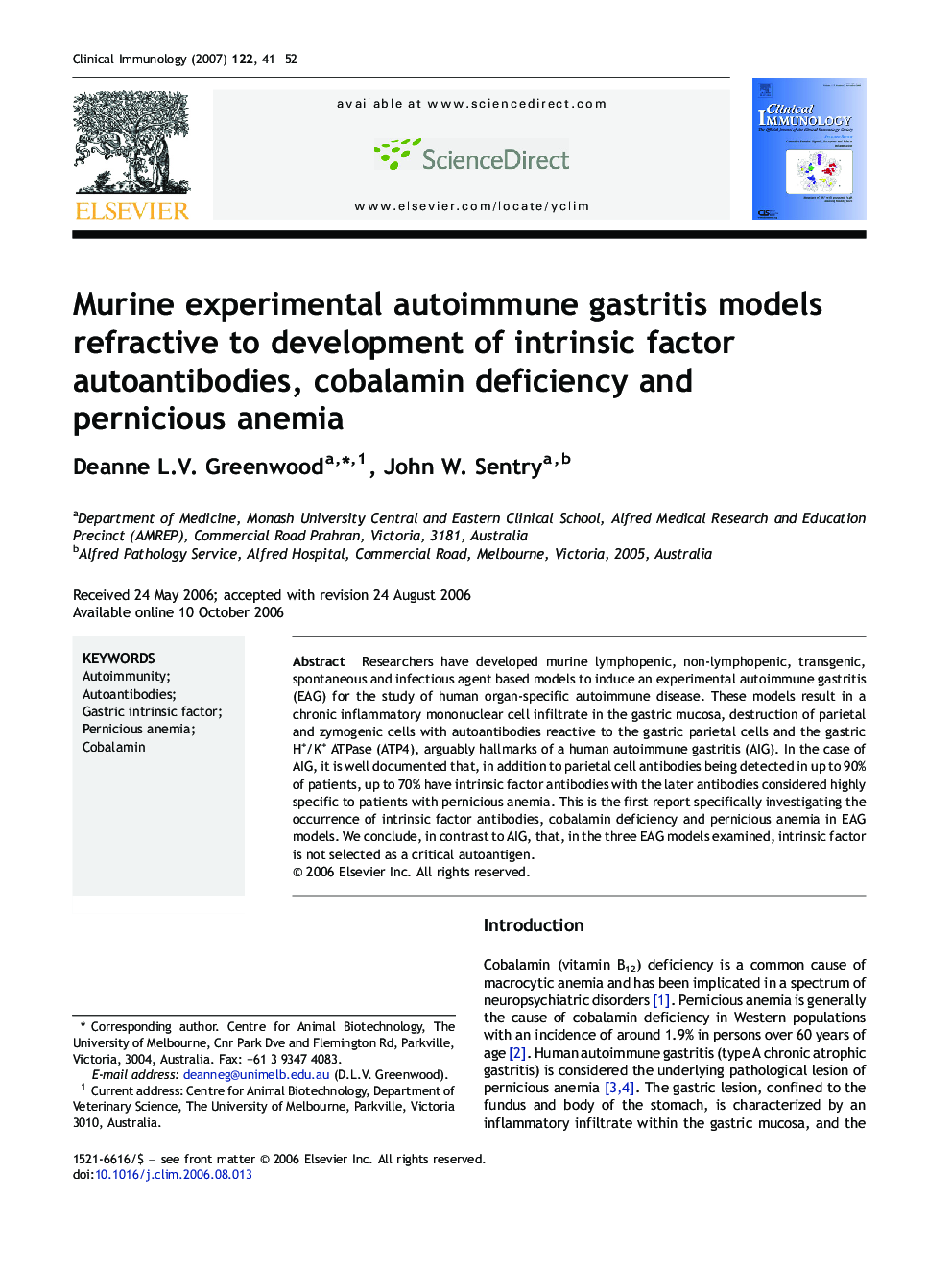| Article ID | Journal | Published Year | Pages | File Type |
|---|---|---|---|---|
| 3258369 | Clinical Immunology | 2007 | 12 Pages |
Researchers have developed murine lymphopenic, non-lymphopenic, transgenic, spontaneous and infectious agent based models to induce an experimental autoimmune gastritis (EAG) for the study of human organ-specific autoimmune disease. These models result in a chronic inflammatory mononuclear cell infiltrate in the gastric mucosa, destruction of parietal and zymogenic cells with autoantibodies reactive to the gastric parietal cells and the gastric H+/K+ ATPase (ATP4), arguably hallmarks of a human autoimmune gastritis (AIG). In the case of AIG, it is well documented that, in addition to parietal cell antibodies being detected in up to 90% of patients, up to 70% have intrinsic factor antibodies with the later antibodies considered highly specific to patients with pernicious anemia. This is the first report specifically investigating the occurrence of intrinsic factor antibodies, cobalamin deficiency and pernicious anemia in EAG models. We conclude, in contrast to AIG, that, in the three EAG models examined, intrinsic factor is not selected as a critical autoantigen.
